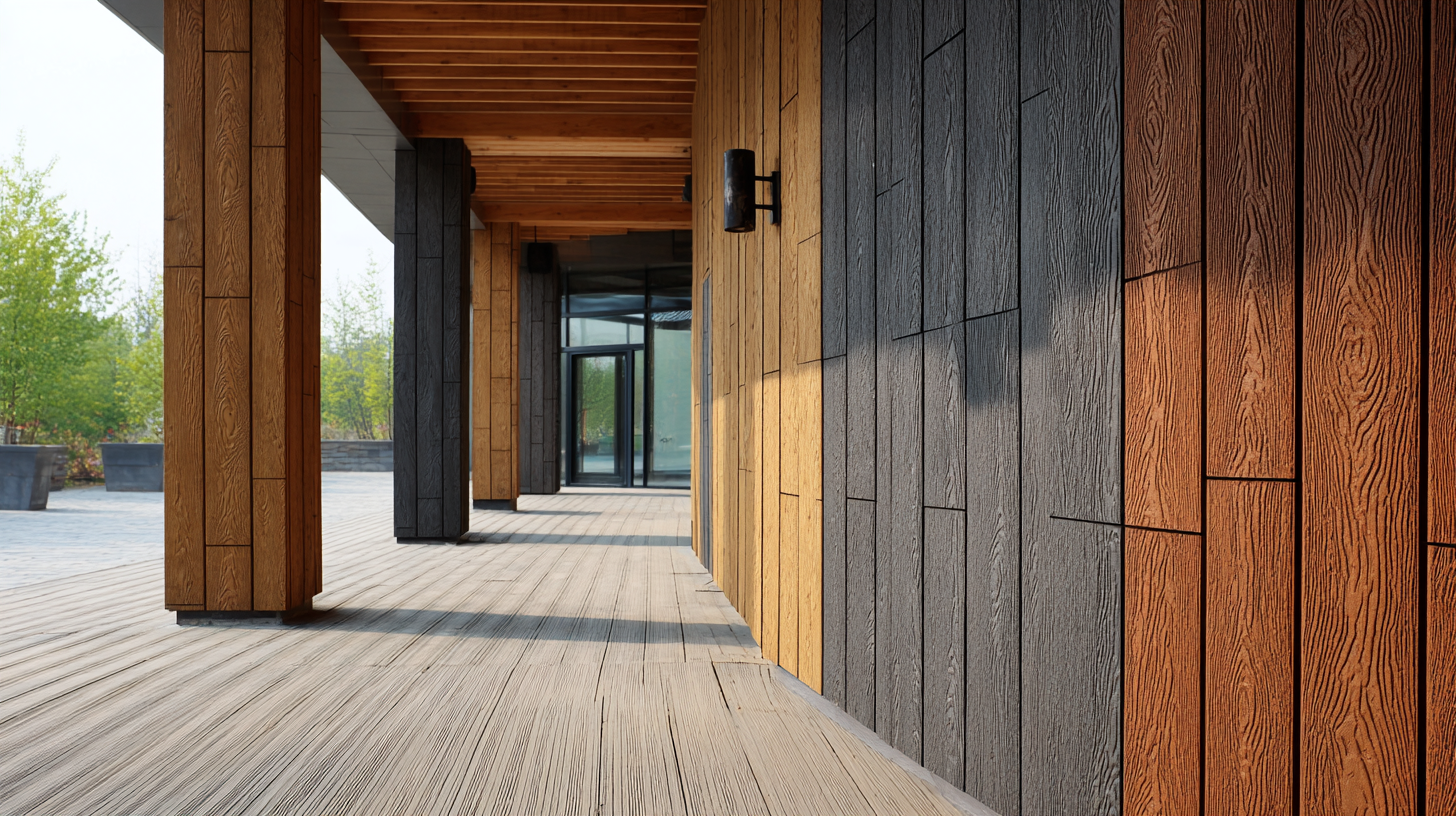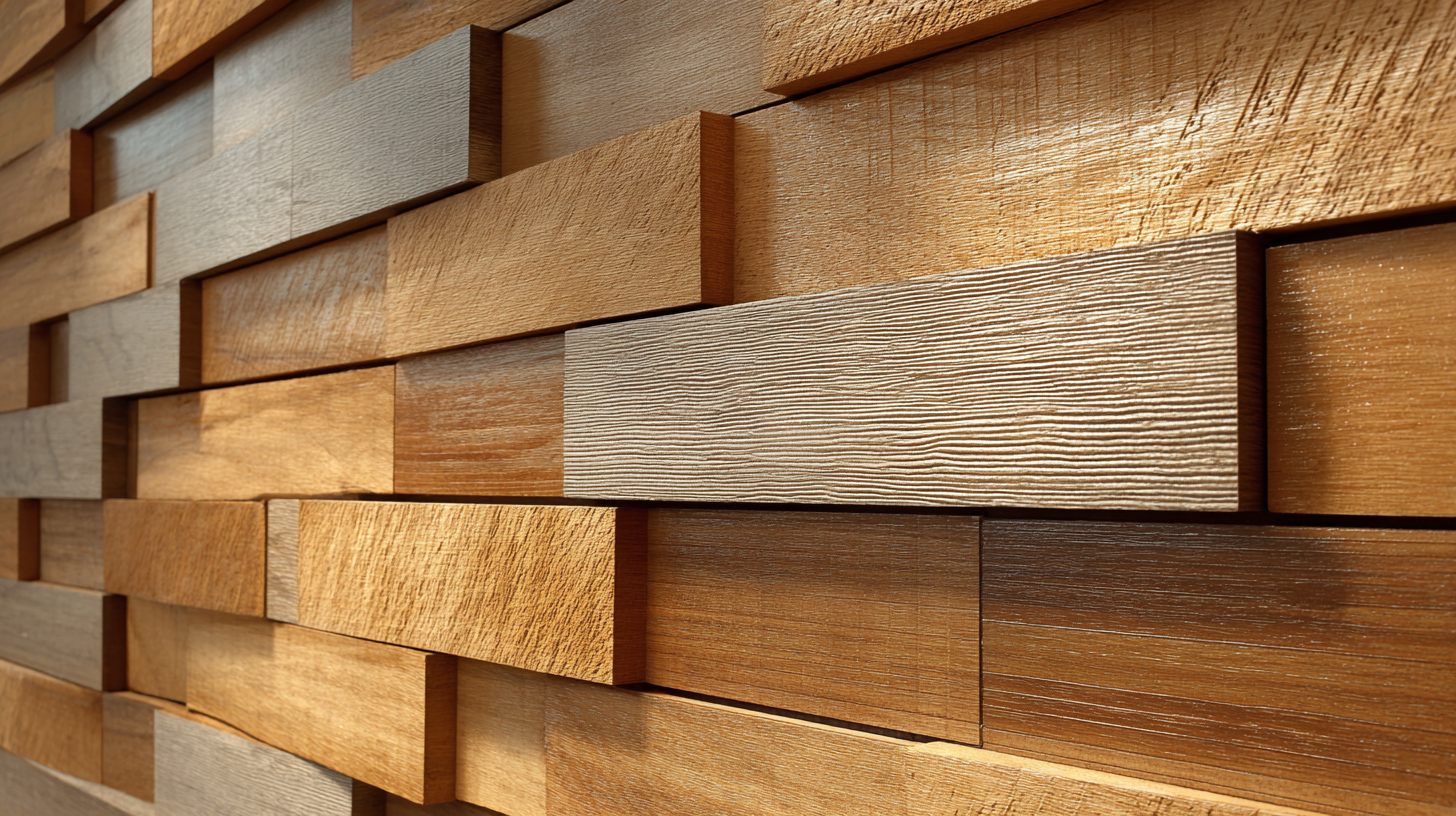Leave Your Message
In the rapidly evolving landscape of global trade, ensuring compliance while sourcing materials like WPC cladding wall panels has become increasingly crucial. According to a recent report by MarketsandMarkets, the wood-plastic composites market is projected to reach $9.2 billion by 2026, highlighting the demand for sustainable building materials. As manufacturers and retailers navigate complex regulatory frameworks across various regions, understanding essential certification requirements is vital. Not only does compliance minimize legal risks, but it also enhances brand reputation and marketability of WPC cladding wall panels.

In this blog, we will provide tips and insights that will help industry stakeholders effectively navigate the intricacies of global trade compliance, ensuring that their products meet the highest standards while maximizing their competitive advantage.
When it comes to WPC cladding wall panels, understanding compliance is crucial for both installation and long-term performance. Compliance guarantees that materials meet safety and quality standards, which is particularly important in global trade where regulations can vary significantly by region. Adhering to these standards not only ensures the structural integrity and aesthetic appeal of the panels but also protects the reputation of manufacturers and contractors involved.
The process of installation becomes increasingly complex as different regions enforce distinct certifications. For instance, materials sourced from various countries must align with both international and local regulations. This requires project stakeholders to stay informed about compliance requirements to avoid costly delays or penalties. By investing the time to understand these essential certification insights, businesses can effectively navigate the complexities of global trade compliance, making their operations smoother and more reliable.
| Certification Type | Description | Importance | Geographic Applicability |
|---|---|---|---|
| CE Marking | Indicates conformity with health, safety, and environmental protection standards for products sold within the European Economic Area. | Essential for legal market entry in the EU | European Union |
| ASTM Standards | Defines the technical standards for materials, products, systems, and services used in construction. | Ensures product quality and safety in North America | United States & Canada |
| ISO 9001 | International standard that specifies requirements for a quality management system (QMS). | Enhances customer satisfaction through effective quality management | Global |
| GreenGuard Certification | Verifies that products meet stringent chemical emissions limits. | Promotes healthier indoor environments | North America |
| SCS Global Services | Provides sustainability certifications for various products, including WPC. | Validates environmental claims and boosts marketability | Global |
When navigating the complexities of global trade compliance for WPC (Wood Plastic Composite) cladding, it is essential to understand the key certifications required for these materials. Certifications such as ASTM (American Society for Testing and Materials), ISO (International Organization for Standardization), and CE (Conformité Européenne) are vital not only for complying with local and international standards but also for ensuring quality and sustainability in construction practices. These certifications influence the overall durability and performance of WPC cladding, ultimately affecting maintenance costs over time.
Investing in certified WPC cladding can significantly reduce maintenance costs. Properly certified products are typically subjected to rigorous testing, which ensures their resilience against elements like moisture, UV degradation, and pests. Consequently, they can minimize frequent repairs and replacements.
Tips for selecting certified WPC cladding include verifying documentation and looking for third-party testing results. Also, consider the environmental certifications, such as FSC (Forest Stewardship Council) or SFI (Sustainable Forestry Initiative), which confirm sustainable sourcing. These practices not only support regulatory compliance but also enhance the longevity and cost-effectiveness of your cladding solutions.
In the WPC (Wood Plastic Composite) industry, after-sales service plays a pivotal role in reducing repair expenses and enhancing customer satisfaction. With the global WPC market projected to reach $8.5 billion by 2027, as reported by ResearchAndMarkets.com, companies are increasingly recognizing that effective after-sales support can significantly influence consumer buying decisions and loyalty. Implementing robust service protocols not only addresses immediate repair issues but also builds long-term relationships with customers, resulting in repeat business.
Moreover, maintaining a strong after-sales service framework can lead to substantial cost savings. According to a report from the American Society for Quality, effective after-sales support can reduce maintenance costs by up to 20%. This is particularly valuable in the WPC cladding sector, where weather resistance and durability are critical selling points. By addressing potential issues proactively through comprehensive service agreements, manufacturers can minimize warranty claims and enhance the overall product lifecycle. Thus, businesses that prioritize after-sales service not only bolster their reputation but also position themselves advantageously in a competitive market landscape.

When choosing WPC (Wood Plastic Composite) cladding wall panels, certification is more than just a box to tick—it's a guarantee of long-term value. Certified WPC cladding solutions are rigorously tested to meet international standards, ensuring they possess superior durability and performance compared to non-certified alternatives. This not only means fewer repairs and replacements over time but also contributes to reduced lifecycle costs. Data shows that investing in certified materials can save up to 30% over ten years compared to lower-quality options, which often result in higher maintenance expenses.
Moreover, certified cladding products incorporate environmentally sustainable practices, adding another layer of financial benefit. As consumer awareness of eco-friendly building materials rises, properties featuring certified WPC cladding tend to retain higher resale values. These panels are designed to withstand the rigors of weather and wear, translating into fewer replacements and lower environmental impact. Utilizing data-driven insights helps businesses and homeowners alike make informed decisions that enhance not just aesthetic appeal but also long-term financial stability and compliance with global trade standards.
This chart illustrates the lifetime cost benefits associated with certified WPC cladding solutions compared to non-certified options over a span of 20 years. The data indicates significant savings when choosing certified products due to reduced maintenance and enhanced durability.
In today's interconnected marketplace, navigating regulatory challenges is imperative for companies dealing in Wood Plastic Composite (WPC) cladding products. Compliance assurance is not just about adhering to local regulations; it involves understanding international standards that vary significantly from one region to another. Manufacturers must stay abreast of evolving laws concerning environmental impacts, product safety, and quality assurance, which are increasingly stringent. Engaging with regulatory bodies and staying informed about compliance requirements helps businesses avoid costly fines and potential product recalls that can tarnish their reputation.

Furthermore, effective compliance management goes beyond mere adherence to regulations; it necessitates a proactive approach to integrate compliance into the business strategy. Companies must invest in training employees and establishing robust internal processes to monitor and ensure compliance across the supply chain. By fostering a culture of compliance, firms can enhance their credibility and trustworthiness in the global trade arena. This not only positions them favorably with regulatory authorities but also reassures customers of the quality and safety of their WPC cladding products, ultimately leading to long-term success in the competitive market.

